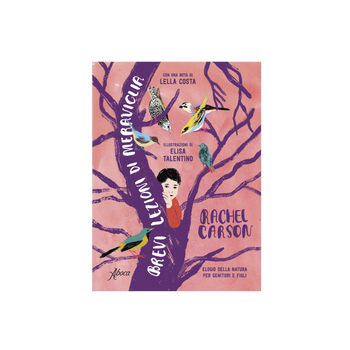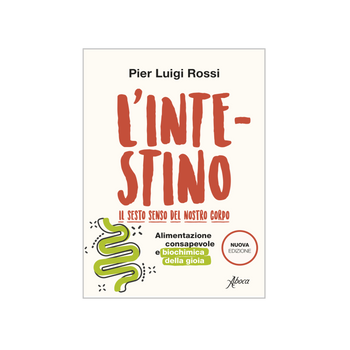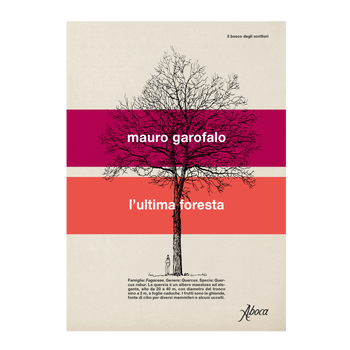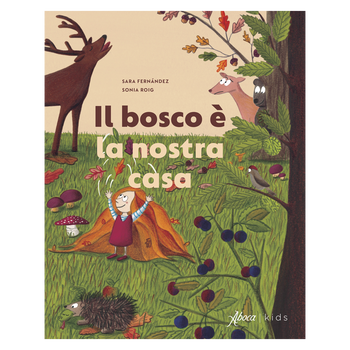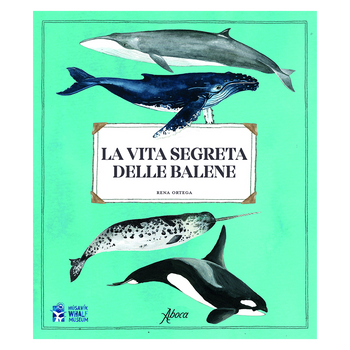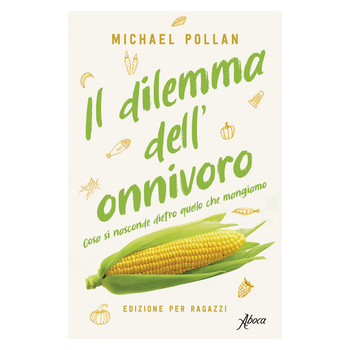You have no items in your shopping cart.
Le selve di Dante Le selve di Dante
Piante sacre e boschi fatali nella Divina Commedia Piante sacre e boschi fatali nella Divina Commedia
Alberto Casadei Alberto Casadei
€14,00
This short treatise by one of Dante's most eminent scholars sheds new light on the magnificence of the Divine Comedy, a work that like no other contains insights that are still relevant today: one of the few classics that is still quoted and reinterpreted throughout the arts.
This short treatise by one of Dante's most eminent scholars sheds new light on the magnificence of the Divine Comedy, a work that like no other contains insights that are still relevant today: one of the few classics that is still quoted and reinterpreted throughout the arts.
Availability:
In Stock
Sku: LIBSELVDA
ISBN/EAN: 9788855231169
This publication is part of the celebrations to mark seven centuries since Dante Alighieri's death (1321-2021). The month of September will be the culmination of the celebrations.
The theme of the wood is central to the Divine Comedy, as everyone knows from the very first verses. But while the "selva oscura" (dark wood) is allegorical, since it is used to allude to a dangerous, above all moral, condition, and probably derives from the imitation of Virgil's model, in the course of his work Dante will describe other woods with much more realistic details, both in a negative light (the wood of suicides) and in a positive light (the forest of Eden).
In a fascinating journey through the various cantos, it is possible to explore not only Dante's relationship with Nature, the daughter of God, and in particular the sacred trees (such as those of Good and Evil) or invented trees, but also the narrative models used by the poet to represent the Afterlife and our own world.
Alberto Casadei teaches Italian Literature at the University of Pisa, is coordinator of the Dante Group in the Associazione degli Italianisti and is President of the ICoN inter-university consortium. His recent books include: Dante. Storia avventurosa della Divina commedia dalla selva oscura alla realtà aumentata (Il Saggiatore, 2020), Dante oltre l'allegoria (Longo editore, 2021) and the commentaries on Inferno V, Purgatorio VI and Paradiso XXXIII (Garzanti, 2021).
This publication is part of the celebrations to mark seven centuries since Dante Alighieri's death (1321-2021). The month of September will be the culmination of the celebrations.
The theme of the wood is central to the Divine Comedy, as everyone knows from the very first verses. But while the "selva oscura" (dark wood) is allegorical, since it is used to allude to a dangerous, above all moral, condition, and probably derives from the imitation of Virgil's model, in the course of his work Dante will describe other woods with much more realistic details, both in a negative light (the wood of suicides) and in a positive light (the forest of Eden).
In a fascinating journey through the various cantos, it is possible to explore not only Dante's relationship with Nature, the daughter of God, and in particular the sacred trees (such as those of Good and Evil) or invented trees, but also the narrative models used by the poet to represent the Afterlife and our own world.
Alberto Casadei teaches Italian Literature at the University of Pisa, is coordinator of the Dante Group in the Associazione degli Italianisti and is President of the ICoN inter-university consortium. His recent books include: Dante. Storia avventurosa della Divina commedia dalla selva oscura alla realtà aumentata (Il Saggiatore, 2020), Dante oltre l'allegoria (Longo editore, 2021) and the commentaries on Inferno V, Purgatorio VI and Paradiso XXXIII (Garzanti, 2021).
Release date: 2021
Dimensions cm 12,5 x 21
Pages 120
Release date: 2021
Dimensions cm 12,5 x 21
Pages 120






